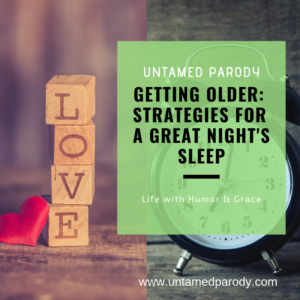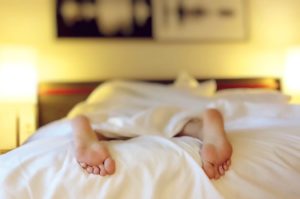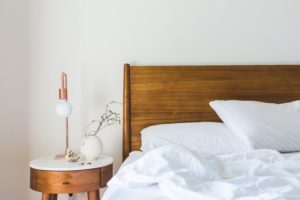
There was a time when it seemed like the only thing that could blast me out of bed in the morning was an ear-splitting alarm clock. As I’ve gotten older, that’s no longer the case. In fact, I wake up at the same time everyday…every stinkin’ day…whether I want to or not. It doesn’t even matter what time I go to bed. I still wake up at 4:30 every morning, give or take a minute or two.
There’s a camp that believes our body gets accustomed to a wake-up time. But research actually shows it isn’t so much the consistent wake-up as it is the consistent sleep/wake schedule. And what leads us to this consistent cycle? Our Circadian Rhythm.
What is Circadian Rhythm?
According to the National Institute of General Medical Sciences, an arm of the National Institutes of Health, our bodies actually have a “master clock” or a clock that drives all our biological functions, including Circadian Rhythm.
Your Circadian Rhythm is a cycle your body goes through every 24 hours. It signals your sleep and awake patterns, and is located within the hypothalamus of the brain. The rhythm tells our body when to release melatonin, which I think we all know is a sleep-inducer. Our Circadian Rhythm get signals from the light received by our eyes – light = awake; dark = sleep. What’s important about our Circadian Rhythm is it influences so many functions of our bodies – sleep/wake, hormones, eating habits and weight loss/gain, and other functions.
How Much Sleep do I need?
Besides feeling like garbage when I don’t get good sleep, what concerns me more is that disrupted Rhythms over time are linked to several chronic health issues. And those with sleep apnea have additional risk to their overall health. Generally, everything researchers publish indicates everybody needs a good 7 to 8 hours of good, fitful sleep per night.
I’ve come to learn that as I get older, a solid 6.5 to 7 hours works for me, as long as I’m consistent. And that never-fail wake-up time I mentioned? Well, that’s in large part to my commitment to maintaining a consistent bed schedule. I have some other tricks I do, which thanks to menopause night sweats took some extra tweaking. But, here are my Strategies for a Great Night’s Sleep.
Strategies for a Great Night’s Sleep
- Keep a consistent schedule, even on weekends and vacation. The occasional late night/early rise won’t hurt, but don’t make a habit of it.
- Keep the bedroom cool. It doesn’t need to feel like a meat locker (unless you have night sweats), but make it cool enough to where you feel like you want to add a blanket.
- Consider sleeping with socks on…light weight and loose work great for me. According to the National Sleep Foundation, wearing socks to warm your feet dilates blood vessels and warm feet are a signal for sleep.
- Don’t eat late! Nothing worse than having food sitting like a boat anchor in your stomach as you sleep….except if you have heartburn or acid reflux! I aim to not eat anything after 7pm, especially not heavy or spicy foods.
- Get off the computer, tablet, or phone at least an hour before going to bed. There’s been a ton studied and written about the effects of blue light emitted from electronics. In fact, if you do a lot of computer work consider getting blue light glasses.
- Try using a lavendar sleep spray. This is the one I use and I absolutely love it. I don’t know that it puts me to sleep, but it does have a calming affect.
- If you snore, don’t ignore. To be VERY clear here…I’m not a doctor. However, I do know that sleep apnea is a big deal….BIG DEAL…and can negatively impact your health in so many ways. There’s no need to be embarrassed by snoring. I don’t care who you are. If you snore, don’t ignore. Talk to your doctor about it!

Sleep is nothing to play around with. It’s critically important to overall health and well-being. If you’re challenged with sleep and nothing seems to help, PLEASE see your doctor.
I’d love to hear what you do to ensure a great night’s sleep. Comment below, and share your success.
